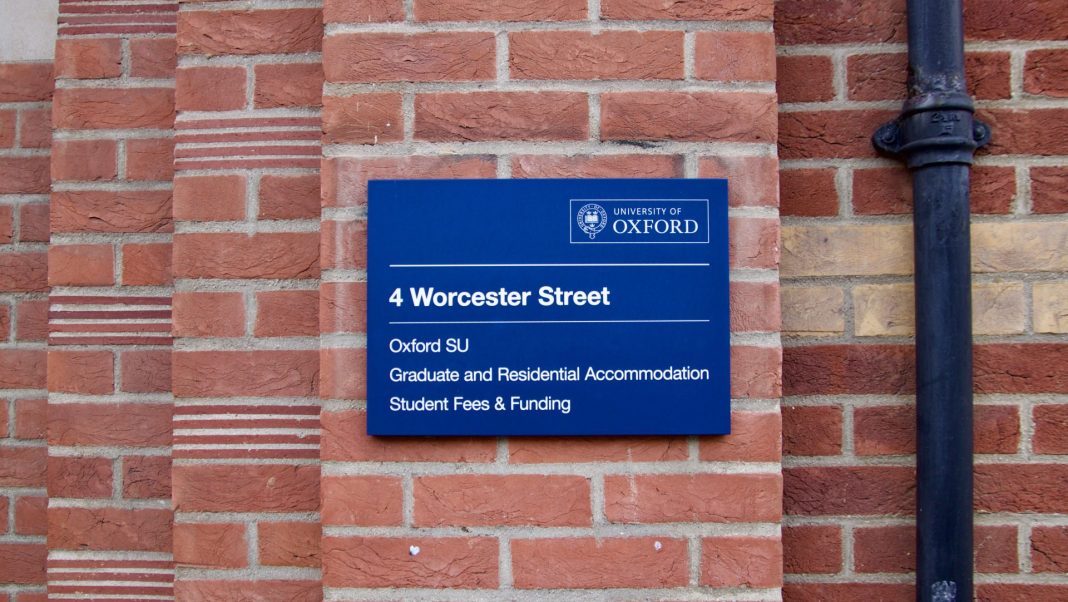Lauren Schaefer is Oxford SU’s Vice President (Postgraduate Education & Access). Eleanor Miller is Oxford SU’s Vice President (Undergraduate Education & Access)
Much has been written about the SU in recent weeks – some of it misinformed, some a myopic interpretation of complex realities, and some insightful. A recent op-ed, published in this same paper, raises a crucial point that has been the topic of much internal discussion within the SU: student apathy towards the SU is a serious problem. Contrary to what you may be assuming, this is not a rebuttal to that piece. In fact, we agree with many of the points raised. The op-ed is a great articulation of the challenges that the SU faces, and we welcome the opportunity to discuss them.
Common Rooms indisputably wield significant influence within the Oxford collegiate system. This is not a flaw; it’s a feature of what makes Oxford so uniquely wonderful. We recognise this, and it is why we are working to bridge the gap between the SU and Common Rooms with our new democratic structure – a Conference of Common Rooms. The SU is not interested in duplicating the important work that Common Rooms do, rather it is working to amplify their voices and causes at a level where systemic change is possible, at a University-wide level.
We also want to counter the notion that the significance of colleges and faculty in students’ lives precludes the SU from having a tangible impact. This is a misunderstanding of how the University operates and the SU’s primary purpose – faculties and departments may make academic decisions, but the SU has a seat at the table of key decision-making committees, and is funded to provide student representation at the University level.
While our visibility may sometimes be limited (especially on committees bound by confidentiality), the SU is the connective tissue, one of the few bodies that has a voice at every level – University, division, and faculty – and without our presence and representation in these spaces, there would be no formal student voice advocating in these conversations. One of the central discussion points of the Transformation project thus far has been around how we can better communicate the realities of student representation to our members and speak about the real impact this representation has on you, the student body.
The recent report on student experience at Permanent Private Halls (PPHs), written by the VPs, is an example of this. The VPs conducted research with current students and wrote a report on the student experience at PPHs, subsequently presenting it to the University’s oversight committee on PPHs. The committee accepted two out of three of our recommendations. Since then, both VPs have been invited to sit on the panel for the next Review of a PPH, which is a review of Wycliffe Hall taking place in Hilary Term 2025. This is a significant improvement from previous panels and a primary example of structural change driven by students, for students.
It is no secret that our greatest challenge is engagement. We get it. Students don’t always follow our socials or open our emails. They don’t always vote in our elections or feel connected to the work we do. But the reality is that student governance is not a spectator sport. Unlike other Oxford organisations, the SU is not here to be performative or controversial, we are not in the business of grand displays. Representation requires participation, and if students disengage entirely, the ability of the SU to advocate for them is weakened. Decisions are made by those who show up.
That said, we understand that Oxford’s demanding academic culture makes it difficult for many to dedicate time to student politics. This is precisely why the SU exists: to ensure that, even when individual students cannot campaign for change themselves, their interests are still represented. The new democratic structure is designed to make this process more accessible, responsive, and attuned to the realities of collegiate student life here, and to provide additional support to ease the burden on elected collegiate representatives.
Feedback is feedback, whether it comes in the form of attending our All-Student Meetings (next one in Week 6!), completing our surveys, or writing an op-ed in the student media. We take every point raised extremely seriously and sincerely understand the scepticism. But before dismissing the SU and its work, we encourage students to engage with us. We might be the Officers of the Oxford Students’ Union, but YOU are the Oxford Students’ Union.
We will continue to represent each and every one of you, day in and day out, from our most to least engaged student. But we want to emphasise that like a lot of things in life, you get out what you put in. Whilst we accept your challenge to engage and communicate better, we challenge you, also, to show up. Get involved. Vote in our elections, come to our meetings, fill out our surveys. Engage with us, hold us accountable, and see what student representation at its best can achieve.
Editorial note: this story solely represents the views of the writers, not of Cherwell, which takes no position.
Have an opinion on the points raised in this article? Send us a 150-word letter at [email protected] and see your response in our next print or online.


